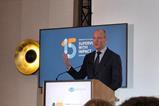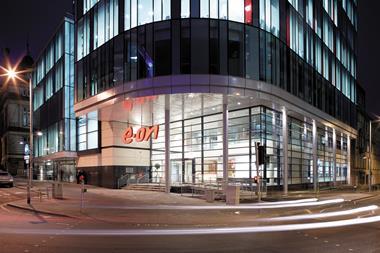The Netherlands’ civil service scheme ABP will switch its investment approach for liquid assets from an active to a passive style. In the future it will only invest actively “if this is proven to structurally produce better returns than index investing after costs,” it said.
ABP announced the fundamental shift of its investment strategy in a revised version of a document stating in its investment beliefs.
The pension fund quietly revised this document last November, adding the following: “For liquid investment categories index investing at a low cost is the starting point [of the investment strategy]. We can add forms of active investing if we previously have sufficient evidence that this, after deduction of costs, will structurally contribute more to reaching our ambition than index investing.”
In late 2021, when ABP’s asset manager APG first launched an index product for its other asset management client Bpf Bouw, the pension fund still proved committed to active investing.
An ABP spokesperson vowed at the time that ABP would not switch to passive investing. “We opt for fully active management because we want to make conscious investment choices,” she added.
ABP is currently the only major Dutch pension fund that still invests fully actively. The vast majority of pension funds switched most if not all of their liquid portfolios to passive management many years ago.
It’s not exactly clear what drove ABP’s radical change of mind. In its annual report, which was published last Friday, the pension fund said passive investing “allows for better cost control”. No one at ABP was immediately available for further comment.
APG prepares for change
The implications of the switch to index investing for ABP’s pension asset manager APG is still unclear. An APG spokesman was unable to comment on the matter.
In its annual report for 2022 that was published a couple of weeks ago, APG noted it is preparing for “changing investment beliefs of our clients”.
It added: “We are looking critically at the financial impact of index investing and are developing index funds for our asset management clients.”
APG received €952m in asset management fees last year, the majority of which was paid by ABP. It is to be expected that APG will receive a significantly lower amount in fees from ABP after the fund makes the switch to index investing.
Equity underperformance
ABP’s active equity investments have lagged the benchmark for years. Last year, ABP commissioned asset manager APG to investigate why. While it said the outcome of this study has informed the review of its investment beliefs, ABP did not elaborate on the reasons for the underperformance.
“The 2022 annual report provides only a limited explanation of the reasons for the disappointing return compared to the benchmark and possible areas for improvement,” according to the fund’s accountability body, an advisory body made up of members.
ABP concluded in its annual report that the added value of active investing came almost entirely from investments in illiquid categories such as unlisted real estate, private equity and infrastructure, rather than from listed investments.
This is at odds with statements in 2021 by Peter Branner, who departed as APG’s chief investment officer as of this week. At the time, he said that “the current climate is especially suited to active investors”, resulting in “good results for our customers”.
ABP said it already communicated the decision to switch to index investing late last year in an interview on ABP’s website with its new executive director of investments Dominique Dijkhuis.
“You can look at it this way that we actually as ABP build a kind of basket of stocks, where we consciously choose what goes in and we keep that for a long time,” Dijkhuis said in the interview.
An ABP spokesperson said they deliberately avoided the use of the terms “passive investing” or “index investing” to keep things simple for members.
Lower asset management costs
ABP saw a considerable decline in its asset management costs thanks to lower performance payments to private equity managers.
It paid €747m in performance fees in 2022, compared to €3.4bn a year earlier, as private equity returns fell from 45% in 2021 to -1.7% in 2022. Fixed management fees rose, however, by €112m to €1.7bn, despite total assets falling.
According to ABP, its management fees are “relatively fixed and mostly not linked to assets under management”.
ABP also commissioned Mercer last year to investigate the rise of its asset management costs in subsequent years, after last year’s record amounts paid in performance fees led to concerns among the fund’s membership.
Mercer concluded that the performance fees paid by ABP to private equity managers were “on average in accordance with the market”.
For private equity, fees paid were even on the lower side, according to Mercer, which added that performance fees paid to managers in listed assets such as developed and emerging market equities and emerging market debt “are less usual in the market”.
The consultant has limited its research to a fact analysis and it did not give any recommendations. ABP will decide this year whether it thinks the findings give cause for action.
The latest digital edition of IPE’s magazine is now available

















